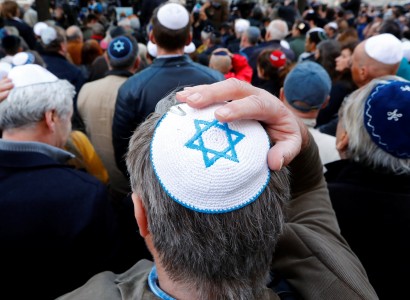
Romanian police were investigating vandalism at the childhood home of Holocaust survivor and Nobel laureate Elie Wiesel, which was painted with anti-Semitic graffiti. Wiesel, an activist and writer, was born in the northwestern Romanian town of Sighetu Marmatiei. His family was deported to Auschwitz, where his mother and one of his sisters died. Wiesel and […]
Continue Reading
Enquiry into the Direction of the Campaign Needs to be Undertaken by the Conservatives It took Jeremy Corbyn some time to ensure that he set out an Inquiry into Antisemitism which will be headed up by Shami Chakraborty. The Inquiry is needed given the charges of antisemitism that should be looked into and given the
The post Labour Did the Right Thing on AntiSemitism, Now the Conservatives Must on Islamophobia appeared first on TELL MAMA.
Continue Reading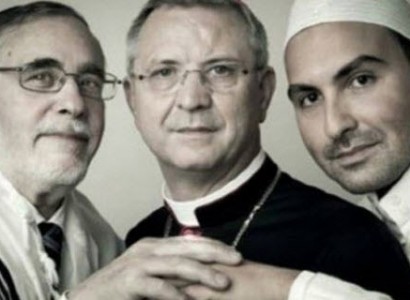
After the national debate on Antisemitism, the Labour Party has set up a working group to stamp down on Antisemitism, which is to be warmly welcomed. Antisemitism, like other forms of hatred and prejudice, must be tackled and tackled with vigour. Yet,there is also a unique nature to Antisemitism that we should acknowledge. We also
The post Let us Not Forget That There is Much That Binds Muslims and Jews appeared first on TELL MAMA.
Continue Reading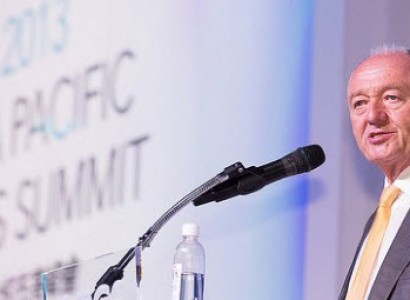
Ken Livingstone’s comments on Hitler and Zionism created a justified outrage. His comments divorce the realities of Hitler’s antisemtism and Nazi violence. Hitler opposed the creation of a Jewish state in his 1925 autobiography Mein Kampf. Hitler’s antisemitic outlook owes in part to the writings of Henry Ford and The Protocols of the Elders of Zion. His commitment to the conspiracy of a Jewish plot to rule the world prevented him from entertaining the idea of a single Jewish state. This became a meaningful way for the Nazis to dehumanize Jewish communities. Hitler obsession with the racist conspiracy of global Jewish influence germinated in Vienna. This grew in the 1920s when party ideologue Alfred Rosenberg introduced him to The Protocols of the Elders of Zion. The Nazi Party had already published copies of the text in 1919. And by 1939, the party had published at least 23 versions of the text. So Livingstone’s point that Hitler “was supporting Zionism” is wrong. Nor did Israel exist in 1932. The conflation between Zionism, Israel and Hitler only serves to cause deep upset. Livingstone’s comment also divorces the complexities of Jewish thought in this era. Removed from the historical context of growing antisemitic [...]
The post Why Ken Livingstone is wrong about Hitler and Zionism appeared first on Religious Reader.
Continue Reading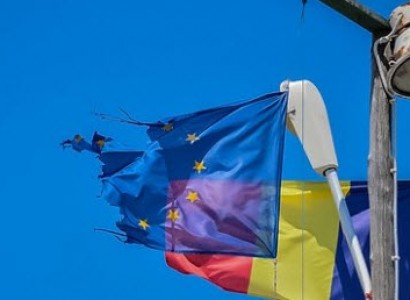
A mayoral candidate in the upcoming Bucharest election had denied Romania’s complicity in the Holocaust in a 1994 news article. Marian Munteanu now of the National Liberal Party (PNL), had founded the ultra-Christian and nationalist Movement for Romania (Mişcarea pentru România) in 1991. The accusations surfaced in their newspaper ‘Mişcarea’ in June 1994. The party foleded in 1996 as Munteanu pursued other interests. He denied that Romania had experienced an anti-Jewish Holocaust and the 400,000 deaths were no more than a ‘deeply flawed assessment’. Much of Romania’s Holocaust denial concerns the actions of Nazi collaborator General Ion Antonescu. His antisemitism is, however, without question. In a 1941 session of the Council of Ministers he said: “I give the mob complete license to massacre [the Jews]. I will withdraw to my fortress, and after the slaughter, I will restore order.” Antonescu ordered pogroms and the closure of all ‘Jewish communist cafes’. The repressive regime had proved one of Hitler’s most consistent allies during the Second World War. General Antonescu had met with Hitler in 1943 to reassure him of Romania’s unconditional support. Romania and other Axis allies were part of the invasion of the Soviet Union in 1941. Odessa, a city [...]
The post Bucharest mayoral candidate outed as Holocaust denier appeared first on Religious Reader.
Continue Reading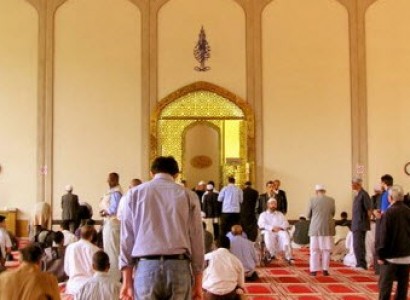
Channel 4 commissioned ICM to poll Muslims in Britain on a range of issues from women’s rights to marriage equality. But did the poll titled “What do British Muslims really think?” answer its own question? Polling British Muslims is a difficult and expensive task. It’s why YouGov avoided the Sun’s now infamous ‘1 in 5 Muslims’ poll. ICM’s researchers picked 138 random Local Super Output Areas where Muslims make up at least 20 per cent of the population. This skewed the findings to areas with relative social deprivation. It also over-represented certain ethnic groups. Yet it still captured 51 per cent of the total Muslim population. Of the 1,081 Muslims polled, 55 per cent were Pakistani. British Asians/Asians totaled 83 per cent of the polling data. Data from the last census revealed that British Asian/Asians totaled 67.6 per cent of Muslims in England and Wales. The poll included just 11 Arabs and 16 white Muslims who account for 6.6 per cent and 7.8 per cent of Muslims in England and Wales. Despite methodological issues it remains a serious poll. As with previous surveys – Muslims identify with Britain at a higher rate than the national average. They also expressed greater [...]
The post What do Muslims in Britain actually think? appeared first on Religious Reader.
Continue Reading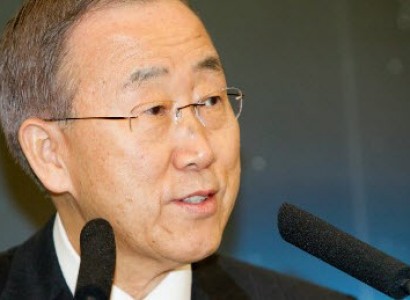
UN Secretary-General Ban Ki-moon condemned the divisive myth-making of the far-right and the growing hostility towards Muslims,refugees, Jewish communities and other minorities. His remarks at a General Assembly meeting marked the International Day for the Elimination of Racial Discrimination on March 21. This growing hostility and violence is ‘manifested most directly in anti-refugee, anti-migrant and, in particular, anti-Muslim bigotry, attacks and violence’. As moderate parties harden their positions and far-right parties sow division. The Secretary-General’s grave tone bore the weight of Europe’s violent history. As the anti-refugee rhetoric mirrored ‘the darkest chapters of the last century’. Ban Ki-moon spoke a universal and pluralistic truth: that ‘an assault on one minority community is an attack on all’. And that requires us to speak out against antisemitism, anti-Muslim bigotry and other forms of hate. This year’s International Day for the Elimination of Racial Discrimination also focuses on the challenges and achievements of the Durban Declaration and Programme of Action. The Durban Declaration and Programme of Action promised a robust response to racism. Ratified in 2001, the framework raised concerns about growing antisemitism and Islamophobia. Point 150 “Calls upon States, in opposing all forms of racism, to recognize the need to counter anti-Semitism, [...]
The post UN Secretary-General condemns rising anti-Muslim and anti-refugee bigotry appeared first on Religious Reader.
Continue Reading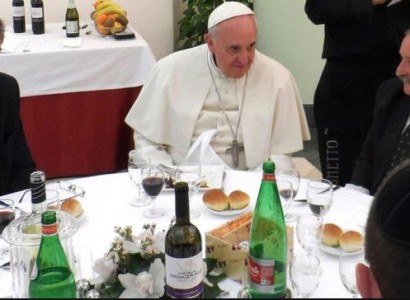
Pope Francis will visit the Auschwitz-Birkenau concentration camp in July, as part of World Youth Day. This trip coincides with his five day trip to Poland, arriving on July 27 and departing July 31. Pope John Paul II, himself Polish, became the first pope to visit the camp. Benedict XVI visited in 2006. The US Holocaust Museum estimates that the SS had murdered at least 960,000 of the 1.1m Jews deported to the camp. Of the 23,000 Romani, the Nazis murdered 21,000. Other victims included 15,000 Poles, 15,000 Soviet prisoners of war. And 10-15,000 members of other nationalities perished (including Czechs, Yugoslavs, Germans, Austrians and French). On June 7, 1979, Pope John II made a five-hour visit to the camp. He prayed before a stone crucifix in memory of the Catholic priest Maksymilian Kolbe, prisoner number 16670, who the SS murdered in 1941. Kolbe volunteered to die, so Franciszek Gajowniczek, a father of five might live. Gajowniczek, the Polish army sargeant had been chosen to die in an Auschwitz dungeon called the “hunger bunker,” after a prisoner had escaped. Kolbe pleaded, ‘I want to take the place of this man. He has a wife and a family. I have no one. [...]
The post Pope Francis to visit Auschwitz death camp in July appeared first on Religious Reader.
Continue Reading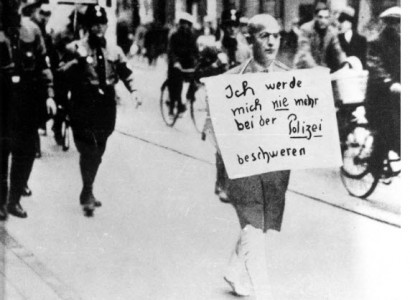
The year is 1933 and Hitler’s rise to power is imminent. Days earlier and the Nazis had exploited the burning of the Reichstag, home of the German parliament, for votes. Armed security forces patrolled public buildings. On the streets, Sturmabteilung (SA) ‘brown shirts’ had their violence legitimised by decree. Political violence and intimidation, however, did not grant Hitler his parliamentary majority. The March 5 elections gave the Nazi Party 43.9 per cent of the vote and 288 parliament seats out 647. On March 10, 1933, Dr Michael Siegel visited a Munich police station on behalf a client. Dr Siegel was one of roughly 4,000 Jewish lawyers in Germany. They held senior positions in the court system, bar association and justice ministry. In 1933, racist laws pushed saw many lose their jobs. The indignity of this discrimination was was compounded by further arrests and violence. Dr Siegel had entered a Munich police station on behalf of Max Uhlfelder, the Jewish owner of a large city-centre store. Nazi Party members had taken positions of office in Munich a day earlier. Heinrich Himmler, the SS commander, now commanded the Police Authority. The Swastika flew atop public buildings. Nazi paramilitaries had smashed Mr Uhlhelder’s [...]
The post Dr Michael Siegel: the Jewish lawyer who survived Nazi violence and humiliation on March 10, 1933 appeared first on Religious Reader.
Continue Reading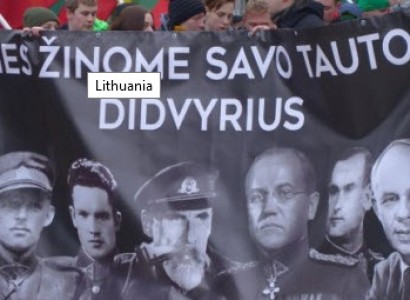
Nationalists marched in Kaunas, a city east of Lithuania’s capitol of Vilnius, to celebrate alleged Nazi collaborators. Members of defendinghistory.com – a website dedicated to exposing extremism in Lithuania monitored the 16 February march. The Union of Nationalist Youth of Lithuania organised the march to fall on the anniversary of Lithuania’s declaration of independence in 1918. Under the banner “We Know Our Nation’s Heroes”were pictures of Adolfas Ramanauskas-Vanagas, Jonas Noreika, Povilas Plechavičius, Kazys Škirpa, Antanas Baltūsis-Žvejas, and Juozas Ambrazevičius-Brazaitis. Individuals accused of direct complicity in the Holocaust or fighting alongside Nazi forces. The Soviet Union invaded Lithuania in 1940. And within two months had annexed the country. A year later and Lithuania had absorbed Jewish refugees fleeing Nazi tyranny in Poland. This swelled Lithuania’s Jewish population to 250,000 (10 per cent of the population). Juozas Ambrazevičius-Brazaitis formed a provisional government after Nazi Germany had expelled the Soviets. Nazi Germany had banned the preferred choice of Kazys Skirpa from returning to Lithuania. It lasted for six weeks. Some accuse it of it complicity with the invading Nazi forces. Others would argue that it attempted in vein to restore statehood. The provisional government had welcomed the Nazi vision for a ‘new Europe’. [...]
The post Lithuanian neo-Nazi march celebrates Nazi collaborators appeared first on Religious Reader.
Continue Reading